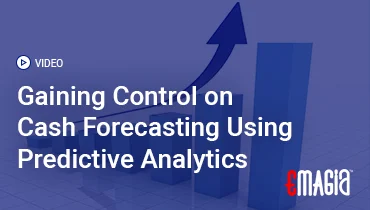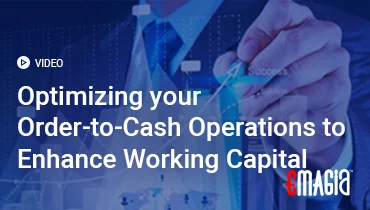Understanding your credit score is crucial in managing your finances effectively today. But beyond individuals, businesses and banks increasingly rely on advanced credit scoring software and credit risk management software for banks to make informed lending decisions. This article delves into the fundamentals of credit scores, explores modern credit scoring platforms, and explains how automated credit report systems are transforming credit risk assessment.
What is a Credit Score?
A credit score is a numerical value, usually three digits, that reflects an individual’s creditworthiness by analyzing their credit history. Financial institutions rely on this score to assess the likelihood of repayment before offering loans or credit. It is determined by factors such as payment consistency, total outstanding balances, duration of credit accounts, variety of credit types used, and recent credit activity.
Credit scores generally fall within a range of 300 to 850, where a higher score means greater creditworthiness. This figure influences decisions on loan approvals, interest rates, credit card eligibility, and even housing rental applications.
The Rise of Credit Scoring Software
Manual credit assessment methods are increasingly replaced by sophisticated credit score software that automates the evaluation process. These systems leverage complex algorithms to analyze vast amounts of data quickly and consistently, reducing human error and improving decision accuracy.
A reliable credit scoring platform integrates data from credit bureaus, banking transactions, and alternative data sources to generate precise credit scores. This automation not only speeds up the credit decision process but also enables real-time updates through automated credit report generation.
How Software Credit Scoring Enhances Credit Risk Assessment
Modern software credit scoring solutions use artificial intelligence and machine learning to improve the accuracy of credit risk models. By analyzing patterns and trends in financial behavior, these platforms provide nuanced risk profiles, allowing lenders to tailor credit products effectively.
Additionally, credit risk assessment software helps banks and financial institutions comply with regulatory standards by maintaining detailed audit trails and ensuring unbiased lending decisions.
Credit Risk Management Software for Banks: Minimizing Defaults
Banks depend heavily on credit risk management software for banks to monitor and mitigate the risk of loan defaults. These platforms provide end-to-end solutions that cover credit evaluation, risk scoring, portfolio management, and stress testing.
By integrating credit scoring data with broader risk management tools, banks can optimize their lending strategies, reduce non-performing loans, and maintain financial stability.
Why Businesses Use Credit Check Software for Business
Beyond banks, many businesses adopt credit check software for business to evaluate the creditworthiness of customers, suppliers, and partners. This practice helps reduce payment delays and bad debts, improving cash flow and operational efficiency.
With features like credit limit recommendations and payment behavior analysis, credit scoring solutions empower companies to make smarter B2B credit decisions and build healthier financial relationships.
Benefits of Automated Credit Report Generation
The integration of automated credit report generation in credit scoring platforms means lenders receive instant, accurate credit information. This reduces turnaround time for loan approvals and allows for continuous monitoring of borrower risk.
Automation also improves data security and reduces manual processing costs, making it a win-win for financial institutions and their customers.
The Future of Credit Scoring Platforms
Looking ahead, innovations such as AI-driven predictive analytics, blockchain technology, and cloud-based credit scoring platforms are set to redefine credit risk management. These tools will enable more transparent, faster, and fairer credit decisions.
Open banking and alternative data sources are expanding the horizons of credit scoring, enabling financial inclusion for individuals and businesses previously underserved by traditional systems.
How Emagia Supports Advanced Credit Risk and Scoring Needs
Emagia offers a state-of-the-art credit scoring solution that leverages AI and automation to streamline credit risk assessment and decision-making processes. Their platform integrates seamlessly with existing banking and ERP systems to provide real-time insights and automated credit reports.
By using Emagia’s credit risk software, banks and businesses can reduce credit defaults, accelerate order-to-cash cycles, and improve overall financial health. Their scalable and customizable platform ensures that organizations can adapt quickly to changing market conditions and regulatory requirements.
Frequently Asked Questions (FAQs)
What factors affect my credit score?
Several elements affect your credit score, including your history of payments, the percentage of credit you’re using relative to your limits, how long your credit accounts have been open, the different kinds of credit you hold, and any recent inquiries into your credit report.
How does credit scoring software benefit lenders?
Credit scoring software automates the evaluation process, providing faster, more accurate risk assessments while minimizing human errors.
What distinguishes credit scoring software from credit risk management software?
Credit scoring software focuses on calculating creditworthiness, whereas credit risk management software provides broader tools for evaluating and mitigating portfolio-wide risks.
Is it possible for businesses to utilize credit check software to evaluate their customers?
Yes, many businesses use credit check software to assess the creditworthiness of clients and suppliers, helping reduce financial risk.
Is automated credit report generation secure and reliable?
Yes, automated systems reduce manual errors, ensure up-to-date information, and often include enhanced security protocols to protect sensitive data.
How is AI changing credit scoring platforms?
AI improves predictive accuracy by analyzing complex data patterns, enabling more personalized and fair credit decisions.



